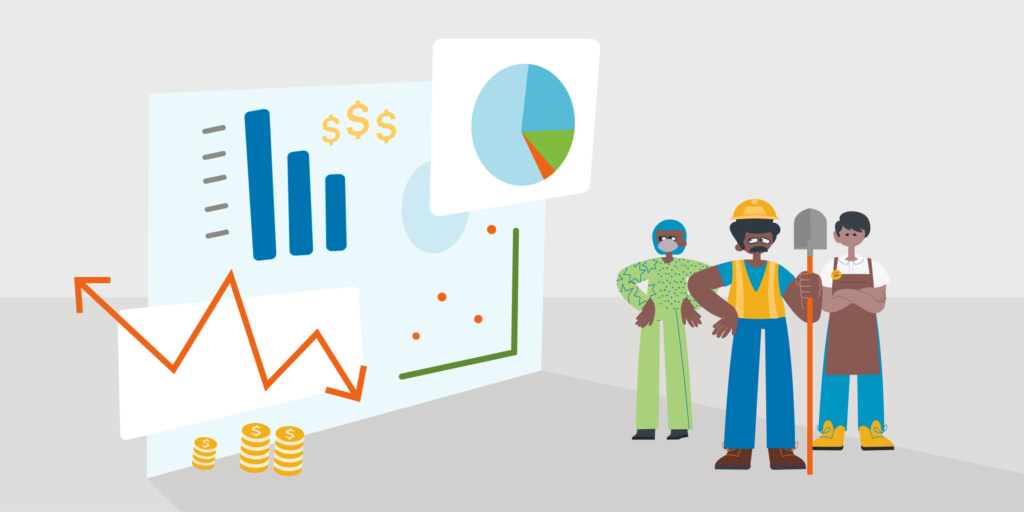
Who pays for transit? Why Mecklenburg’s sales tax referendum falls hardest on everyday people
Mecklenburg County will be asking voters to approve a sales tax referendum this fall to fund transportation infrastructure.
Public investment in transit is essential to connect workers to employment, students to education and training, and communities to one another. The best way to maximize our collective investment in transportation is to make sure people with low incomes — who use public transit options the most and face the greatest barriers to opportunity — have more affordable and accessible options to support their mobility.
It’s not just the specifics of the plan for transportation projects that matter, but also how those projects are funded and who pays.
The sales tax asks more from North Carolinians with middle, fixed, and low incomes as a share of their total income than it does the wealthiest. At a time when federal and state elected leaders continue to enact deep income tax cuts and limit connections to opportunity for everyday people, turning to the sales tax will make our tax code even more upside-down for some of North Carolina’s residents.
Sales taxes ask more from everyday people
The sales tax asks more from those with the least because people with lower incomes spend most of their income on goods and services that they need in their everyday lives. In North Carolina, households with poverty-level income pay 6.6 percent of that income on sales and excise taxes while the richest 1 percent pay just over 1 percent.
The proposed sales tax change in Mecklenburg County would raise the tax rate from 7.25 percent to 8.25 percent. To put this increase in perspective, let’s consider the impact on everyday working people.
- Teachers across North Carolina just spent on average $1,632 of their own money on school supplies to set up their classrooms and ensure that their students have the supplies that the state no longer fully funds. Assuming that total is before taxes, teachers in Charlotte paid about $118 in sales tax on those purchases this year; if school supply costs remain the same (unlikely, given inflationary pressures from tariffs) and the sales tax increase is approved, they’ll pay about $135 next year.
- Nurses are often required to pay out of pocket for the scrubs required to perform their job duties. One national survey estimated that nurses spend about $800 a year on scrubs, shoes, and socks. If voters increase Mecklenburg’s sales tax, these nurses will pay $66 in sales tax on those purchases, up from $58 under the current rate.
More generally, North Carolinians with poverty-level incomes already pay approximately $1,400 a year in sales taxes. For low-income households who already pay more of their income in taxes relative to richer North Carolinians, the city of Charlotte estimates these families will pay an additional $130 a year if the sales tax is approved.
Businesses generally pass sales tax on to consumers
Some businesses have championed the sales tax referendum in Charlotte, but most businesses won’t end up paying the tax that will be used to fund the project at the same level as everyday people.
First, businesses don’t have to pay sales tax on the purchase of many inputs for their business. These tax exemptions are reported every two years in the North Carolina Biennial Tax Expenditure Report.
Last released in 2023, the report provides examples of sales tax exemptions for businesses.
- Sales to telephone companies of telecommunication equipment, including central office systems, switchboards, and the like reduce sales tax revenue by $92.6 million, as well as sales of electricity to data centers, which reduces revenue by $4 million;
- Sales of mill machinery ($259 million), equipment for research & development companies ($3 million), and custom computer software ($131.7 million)
- Purchase of fuel for interstate air businesses ($16.4 million)
- Purchase of lifetime seats or box/suite rentals for entertainment activities reduces sales taxes paid statewide by $2.6 million, and paying costs of sporting activities like golf green fees and other activities reduce statewide sales tax revenue by $106 million
Even when businesses pay sales tax on inputs, researchers have found that those taxes generally get passed on to the final consumer of the good or service in the form of higher prices.
Meanwhile, it’s important to note that at the state level, profitable corporations will pay ZERO income tax after 2030 on their profits.
State & federal government push costs to local governments
Because state lawmakers have underinvested in infrastructure for decades — while enacting tax breaks for the wealthy and profitable corporations — local governments are left with few tax options to raise revenue to fund priorities: property or sales taxes.
In addition, state legislators have pushed a “roads-first” agenda when it comes to transportation investments, exerting pressure on local elected leaders and limiting their ability to reflect the priorities of local residents who may want to invest in buses, light rail, or other equitable transit solutions.
At the federal level, the situation is no better. The new federal administration has doubled down on tax cuts for the wealthy, reducing its capacity to fund transportation infrastructure and pulling back major investments that were being made to upgrade the nation’s infrastructure under the Infrastructure Investment and Jobs Act and Inflation Reduction Act.
Transportation can advance equity, if done right
For sales tax-funded projects to truly advance opportunity and secure more equitable outcomes in a city that has struggled with economic mobility, equity must be front and center. Residents with low-incomes — who utilize public transit in higher numbers and who often live further out from where jobs are because housing is more affordable — should be prioritized.
Durham provides an example: Years ago, advocates secured important community priorities for a transit tax that included expanded bus lines and affordable housing near transit stops. That’s the kind of community-driven approach that ensures public investments advance opportunity.
But ultimately, piecemeal local sales tax measures can’t substitute for a comprehensive statewide strategy. North Carolina needs:
- State lawmakers to stop cutting taxes for corporations and the wealthy.
- Profitable corporations to pay their share for the infrastructure they benefit from.
- A long-term commitment to equitable transportation investments that expand opportunity for all.




